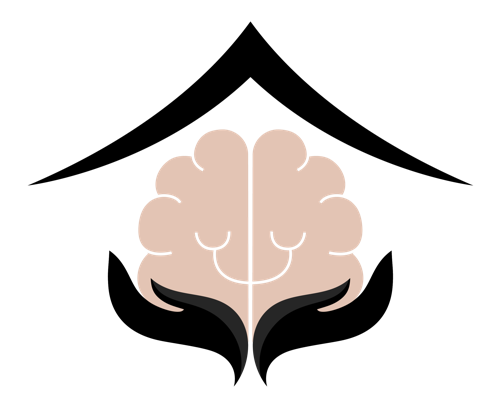Attention-Deficit/Hyperactivity Disorder (ADHD) is one of the most prevalent neurobehavioral disorders, especially among children. However, it can remain with individuals well into adulthood too. Getting a timely diagnosis can often present a challenge but the right ADHD screening test can make a world of difference. Understanding ADHD, knowing the symptoms, and the possibility of self-assessment can help you grasp the essentials of this disorder and navigate this landscape more comfortably.
Understanding ADHD: Unraveling the Complex Puzzle
Attention-Deficit/Hyperactivity Disorder (ADHD) is a neurodevelopmental condition that impacts millions of individuals worldwide, often diagnosed in childhood but sometimes persisting into adulthood. It’s essential to grasp the intricacies of this condition to provide effective support and awareness.
Key Characteristics
ADHD is characterized by persistent patterns of inattention, hyperactivity, and impulsivity. However, it manifests differently among individuals, creating a spectrum of symptoms and severity levels.
Causes
The exact cause of ADHD remains elusive, but genetic factors play a significant role. Additionally, brain structure and function differences may contribute to its development.
Diagnosis and Assessment
Diagnosing ADHD involves a comprehensive assessment, considering behavior, history, and clinical criteria. A qualified healthcare professional, often a psychiatrist or psychologist, conducts this evaluation.
Treatment and Management
Treatment typically involves a combination of behavioral therapies, medication, and lifestyle adjustments. Medications, such as stimulants or non-stimulants, can help manage symptoms.
Impact on Daily Life
ADHD can affect various aspects of life, including academics, work, relationships, and self-esteem. However, with proper management and support, individuals with ADHD can lead successful and fulfilling lives.
Understanding ADHD is the first step toward creating an inclusive and supportive environment for those affected by the condition. With empathy, awareness, and appropriate interventions, individuals with ADHD can thrive and contribute positively to society.
ADHD Symptoms
ADHD symptoms could vary greatly among individuals. However, to be diagnosed with this disorder, a patient needs to display at least six out of the nine commonly recognized symptoms, as per the latest DSM-V guidelines. These symptoms, displayed over a consistent period, might indicate ADHD:
- Interrupting
- Fidgetiness
- Inability to focus or listen
- Lack of attention to details
- Difficulties in following instructions
- Trouble organizing tasks or activities
- Forgetfulness or losing items frequently
- Inability to stay seated (in classroom settings)
- Events and noises easily distract them.
Children and adolescents from ages 4 to 18 can display different symptoms. In contrast, adults might present more nuanced or subtle signs, so understanding these age-specific symptoms can make an ADHD screening test more effective.
Initiating an ADHD Evaluation
The need for an ADHD evaluation can arise due to various reasons including consistent display of ADHD symptoms, difficulties at school, or impacting social interactions. Ideally, a pediatrician or another primary care provider should initiate this evaluation for children or adolescents. However, it’s critical to remember that the ADHD screening test isn’t limited just to the young. Adults recognizing potential ADHD symptoms in themselves should not hesitate to seek an evaluation too. Regardless of your age, if you’re experiencing ADHD symptoms, don’t delay your ADHD screening test.
Tools Used for ADHD Screening
Diagnosing ADHD isn’t always simple due to the diverse range of symptoms that may appear differently in different people. A variety of tools help in diagnosing ADHD, each beneficial in unique ways.
One extensively used tool is the Adult ADHD Self-Report Scale (ASRS-v1.1) Symptom Checklist. This comprehensive checklist helps cast light on many subtle aspects of ADHD that might be overlooked otherwise. The questionnaire is divided into two parts: Part A includes the six questions most predictive of the disorder, making it the perfect start for an ADHD screening test.
On the other hand, the NICHQ Vanderbilt Assessment Scale, used particularly for children and adolescents, assesses both symptoms and performance. The tracker includes questions about academic performance, behavioral issues, and common ADHD symptoms. It employs a numerical scoring system to calculate the mean response, making the interpretation and tracking of progress relatively easy.
Professional diagnosis tools like these make the ADHD screening test process more accurate, but it’s equally essential for individuals to start recognizing and understanding the symptoms as soon as they arise. This understanding can lead to informed discussions with healthcare providers and assure that your ADHD screening test results accurately reflect your situation.
Navigating ADHD doesn’t have to be confusing or overwhelming. A structured approach, the right ADHD screening test, and prompt actions can make all the difference. In the next section of this series, we will discuss self-assessment, post-diagnosis steps, and keeping track of symptom severity. Remember, knowledge is power when it comes to managing ADHD.
Self-Assessment for ADHD
While professional evaluations remain paramount for diagnosing ADHD, self-assessments can play a crucial role as a stepping stone towards seeking professional help. A clear understanding of your own symptoms not only bridges the gap between you and your healthcare provider but also instills a sense of empowerment.
A considerable chunk of the Adult ADHD Self-Report Scale (ASRS-v1.1) Symptom Checklist – Part A focuses on self-assessment. The six questions in this part, known to be the most predictive of the disorder, make for a great starting point in conducting an ADHD screening test on your own.
Questions include day-to-day scenarios like managing tasks, maintaining focus, and finishing projects, making it easy for individuals to relate to their daily life experiences. If your responses lean towards difficulty managing these tasks consistently, it may be an indication to move towards a professional ADHD screening test.
For adults suspecting they have ADHD, conducting such a self-assessment is an empowering first step. By acknowledging potential symptoms, you pave the way for an informed conversation with your doctor, leading to targeted and effective managing strategies for your journey with ADHD.
After Diagnosis — What’s Next?
Receiving a positive result on an ADHD screening test can initially seem overwhelming. But fear not! It’s just the beginning of a clearer path towards managing symptoms effectively. The American Academy of Pediatrics (AAP) provides guidelines for proceeding post-diagnosis, which primary care providers generally follow.
The first step often involves a comprehensive treatment plan tailored to individual needs. This plan could encompass counseling, medication, behavioral interventions, or a combination of all.
For those prescribed medication, two predominant tracks exist – the Fast Track and the Standard Track. These cater to differing needs and severities of ADHD symptoms, ensuring that the treatment remains as personalized as possible.
Monitoring these strategies is as crucial as implementing them. Symptom tracking and timely severity assessment play a pivotal role in this phase, ensuring that the chosen management approach is indeed working. Regular visits to your health professional and clear communication about progress and side-effects, if any, can lead to further adjustments of your treatment plan as needed.
Conclusion
ADHD, while common, often remains unaddressed due to lack of understanding and information. Recognizing potential symptoms, undergoing an ADHD screening test, and seeking appropriate help from healthcare professionals can dramatically improve life quality.
While living with ADHD poses challenges, it’s not insurmountable. The key lies in timely action and professional consultation. If you believe that you or a loved one might have ADHD, there is support out there waiting for you. Remember, acknowledging the situation is the first step towards changing it! And then, with the right strategies and support, you can indeed navigate ADHD fruitfully.
As we conclude, let’s remember that while this blog aims to provide general information about different ADHD screening test it’s critical to consult a healthcare provider for professional medical advice tailored to your specific situation.



